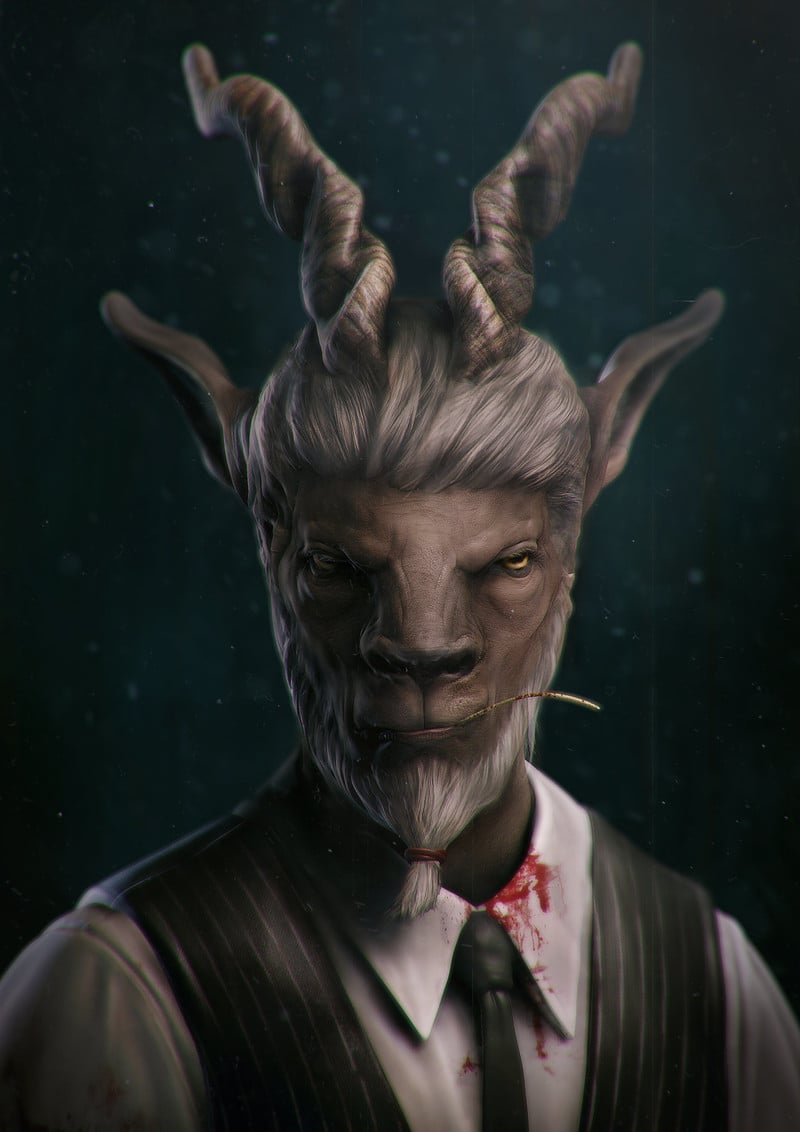Mobster (5e Subclass)
Mobster[edit]
Rogue Archetype

|
|---|
| Goat Mobster by Callen 'ZeiferZ' Desmond |
Rogue mobsters are violent criminals, members of ruthless criminal organizations, that strive for reaching the top in the hierarchy of their gang and group. They use their devilish cunning, alongside an aggressive nature to take control over territories of other gangs, eliminate enemies and keep control by inspiring fear and respect on allies and enemies alike.
- Double Consciousness
A mobster hides his or her true nature, allowing him or her to live a double life: One as a polite member of society, and one as a ruthless criminal. Starting at 3rd level, whenever you make a Charisma (Deception), (Performance) or (Intimidation) check to lie about a crime you have committed, or to intimidate a creature who know about a murder you have committed, treat a roll of 7 or lower on the d20 as an 8.
- Dirty Fighting
Starting at 3rd level, you can use dirty tricks and low blows to gain the upper hand in a fight. You can benefit from your Sneak Attack additional damage when you make unarmed strikes, even if you don't have advantage on the Attack.
In addition, you can use your bonus action on your turn to make a Dexterity (Sleight of Hand) or Charisma (Deception), contested by the target's Wisdom (Insight). On a success, you have advantage on the next melee weapon attack made until the end of this turn.
- Street Runner
To survive in the mean streets, you must be quick on your feet and wise enough to find escape routes. At 3rd level, you have Advantage on Wisdom (Survival) checks made on urban environments.
In addition, whenever you take the Dash action, you gain a climb speed equal to half your movement speed, and your jump height doubles.
- Vendetta
Starting at 9th level, when you fail a contested check, a saving throw or is hit by an attack from a creature within 60 feet, you can declare a vendetta against that creature using a reaction. For the next 24 hours, or until the target of your vendetta dies you have advantage on Intelligence (Investigation) and Wisdom (Survival) checks made to find that creature and in Charisma checks to gather information and to intimidate that creature.
In addition, for the duration, whenever you hit that creature with an attack, you cause additional 1d6 damage, and you don't need advantage on attacks against the target of your Vendetta to benefit from your sneak attack.
Once you use this feature, you can't use it again until you complete a short or a long rest.
- Fury
Starting at 13th level, you can enter in a state of murderous rage, lashing out with desperate frenzy against your enemies. While in fury, you gain the following benefits:
- You can make one additional attack when you take the Attack action on your turn.
- You roll a d6 instead of the normal damage for your unarmed strikes.
- You have Advantage on all your attack rolls, and in Strength, Constitution and Wisdom checks and saving throws.
- You become immune to the frightened and charmed condition.
Your fury lasts for 1 minute, but end earlier if you are knocked unconscious. Once you enter in fury, you can't do it again until you finish a long rest.
- Boss
At 17th level, you gain command over some loyal henchmen. When you finish a long rest on an urban environment, you can recruit the services of a single Bandit Captain or a number of Bandits equal to your Charisma modifier (minimum 1).
They have the sames statistics shown on the Monsters Manual, but they add your proficiency bonus to their Attack Rolls, Saving Throws and Skill Checks.
You can't use this ability again while you still have bandits under your command. If you dismiss your bandits, you can't use this feature again for the next 7 days.
Finally, the Bandit Captain have a number of hit points equal to 7 x your rogue level (instead of the normal amount of hit points), and the bandits have additional hit points equal to your rogue level + your Charisma modifier.
Back to Main Page → 5e Homebrew → Character Options → Subclasses
